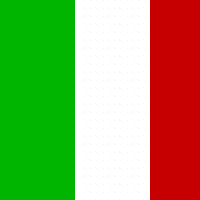Poor economy of Italy might be a key factor in next month's election
Italy 's economy is stagnant, its debt has increased for the first time in over a decade and some top Italian industrialists have turned against a government they once supported.

The bleak picture might prove fatal in the April 9-10 general elections for Premier Silvio Berlusconi, the enterpreneur-turned-politician who had vowed to put his business savvy at the service of the country and make it as prosperous as his own companies.
"The message his victory was based on was: 'Do as I did,' but instead the country is poorer now," Mauro Calise, political science professor at Naples ' Federico II University, said of Berlusconi's rise to power in 2001.
In a campaign largely consumed by mudslinging, the nation's economic problems and rival recipes for recovery have shaped up as a rare substantive issue.
Figures recently released helped catapult the economy to the forefront of attention.
National statistics office Istat said in early March that Italy 's economy the euro zone's third-largest had zero growth in 2005 because of declining business investment, slowing from a 1.1 percent expansion rate the year before. The results marked the 13th time in 14 years that Italy 's economy had underperformed the average growth rate of the 12 euro-zone members.
A few days later, the Bank of Italy said debt increased last year for the first time since 1994, rising to 106.2 percent of gross domestic product from 103.8 percent of GDP in 2004.
Berlusconi has defended his record, mentioning global trends following the Sept. 11 terrorist attacks and competition from Asia as factors that slowed the economy. He accused the center-left opposition of spreading a climate of "catastrophic pessimism."
The government has also blamed the euro for price hikes that make it more difficult for Italians to make ends meet to the point that a Berlusconi government ally has proposed a return to the lira.
This week, Berlusconi breathed a rare sigh of relief as state-funded research center ISAE reported Italian business confidence had risen in March to its highest level in more than five years due to heightened optimism about foreign orders and the overall production outlook.
Italy , analysts say, has suffered particularly because some of its stronger industries, such as textiles or shoemaking, are more vulnerable to competition from China and other Asian economies compared to European countries that produce higher-technology goods.
Berlusconi's government has introduced reforms partially liberalizing the labor market and pension systems, but some have criticized the approach as too timid.
"Something positive has been done," said Lorenzo Codogno, co-head of European economics at Bank of America. But he added: "They should have done more in the first two years of the legislature, instead they lost a lot of time."
The government has also come under attack for delaying legislation aimed at protecting savers in the wake of the Parmalat financial fraud and reforming the Bank of Italy, an institution whose image was tarnished in a banking scandal involving former governor Antonio Fazio.
In recent weeks, Berlusconi has engaged in a war of words with Italy 's powerful industrialist association, Confindustria, which before the 2001 vote threw its support behind him.
Confindustria has not explicitly taken sides in this election. But its head, Fiat Chairman Luca Cordero di Montezemolo, and the association's upper echelons have criticized Berlusconi for failing to cut red tape and state spending. Berlusconi claims he enjoys broad support from association members.
He drew applause from the back of the room as he addressed a recent Confindustria meeting.
"Be optimistic!" he told delegates. "Don't believe newspapers talking about decline!"
During the same meeting, Berlusconi traded barbs with Diego Della Valle, the shoe manufacturer of Tod's fame, who has been harshly critical of the premier. The personal feud between two old allies highlights the disappointment of many industrialists.
Berlusconi, who is trailing in opinion polls, says that more than one term is needed to modernize Italy . His plans include raising minimum pensions, slashing tax on overtime as an incentive for people to work more and keeping up the reduction of the overall tax burden.
His center-left opponent, former premier and EU chief Romano Prodi, has made "kickstarting Italy" one of his campaign slogans. During his stint as premier from 1996-98, Prodi won plaudits for putting Italy's finances in shape in time to qualify for the euro.
He said he would introduce a 5 percentage point reduction in the tax wedge on labor in the first year of his term. His coalition, which has accused Berlusconi's labor reforms of spreading job insecurity, also intends to apply some labor benefits to workers on fixed-term contracts.
However, some analysts express doubt that Prodi's wide-ranging coalition, which includes the extreme left, would be able to pass any significant reforms.
Codogno, the analyst, said the greatest risk comes from two communist parties that are part of the coalition.
"In the past we've seen they can cause trouble," said Codogno. "There's a risk that the more time passes, the more difficult it gets. That's why it will be important to see what Prodi will be able to do in his first 12 months in office", reports the AP.
D.M.
Subscribe to Pravda.Ru Telegram channel, Facebook, RSS!


